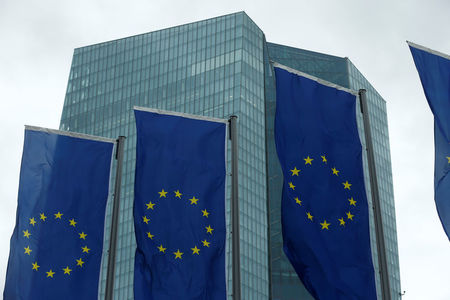

Investing.com – The eurozone economy faces a delicate balancing act in 2025, with growth expected to stabilize but many uncertainties looming, according to UBS.
The bank's analysts believe that the main questions for the region's economy revolve around consumer spending, inflation, foreign trade risks, and the impact of political transformations.
They explain that the primary area of focus is whether the consumer recovery will gain momentum.
UBS expects “growth this year to trend closer to 0.9%” as “household consumption” gains momentum, driven by strong wage growth and low interest rates.
As the most important driver of economic activity in the region, UBS says a strong recovery in consumer spending could lay the foundation for a more sustainable expansion, despite challenges elsewhere in the economy.
However, they add that the potential for renewed trade friction with the United States, especially under President-elect Trump, remains a major concern.
UBS warns that tariffs, especially on EU exports of goods, could hurt the economy, although analysts suggest the impact is likely to be contained.
A scenario of “selective tariffs” targeting specific sectors could result in a modest loss in GDP of between 0.2 and 0.5%, according to the bank. However, UBS does not expect these risks to push the eurozone into recession.
On the monetary policy front, the European Central Bank (ECB) is expected to continue easing interest rates, which could lead to the deposit rate falling to 2%. While inflation pressures have eased, UBS says the risk of further economic challenges could lead to additional interest rate cuts, although risks to this outlook are considered “balanced”.
In the political sphere, the upcoming elections in Germany and ongoing instability in France may lead to further uncertainty.
UBS notes that the shift in German leadership could lead to a “more decisive approach to economic policy.” On the other hand, war in Ukraine also remains an unexpected possibility, with any shift toward peace likely to lift morale in Europe.







